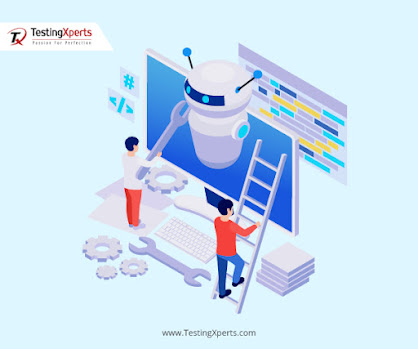Strategies for Implementing Automation Testing Services
Automation testing has proved to be a productive and rewarding software testing platform because of which many organizations have derived huge benefits. The test automation team also plays a key role as they have the required skills, competencies and capabilities to optimize the use of automation testing tools and carry out the execution of projects with utmost efficiency.
A test automation strategy will further level up the overall efficiency of test automation activities and make it more productive and streamlined. In this article, you will get to know the strategies for implementing automation testing services.
What is a test automation strategy?
It is a specific platform through which key focus areas such as test environment, tools, scope, types of testing and testing levels are defined. The priorities are outlined and a general approach to automation is provided. A professional automation testing company helps in preparing a test automation strategy.
The following are the strategies for implementing automation testing:
1. The test plan needs to be defined: The test plan needs to be defined based on the project requirements. Those parts of the development that require test automation should be separated.
2. Ascertaining the tools: Testing tools for both hardware and software needs to be ascertained for successful test automation. An automation testing company helps in providing strategic solutions for selecting the right test automation tool.
3. Set budget: The total duration that will be taken for the testing process needs to be set and a budget should also be set for the entire testing process. Ascertaining budget plays a key role in the testing process.
4. Considering the environment: The team should create a suitable test environment in which the execution of test cases is done and managed promptly. The work progress of automation is also tracked accordingly.
5. Specify the area: The area needs to be ascertained by the team in which the test can be rectified or implemented.
6. The significance of update: The team should keep themselves updated with the trending technologies so that the system can be upgraded with the latest version of the testing tools.
The roles and responsibilities of key members involved in the automation testing phase:
1. Test lead: The testers who are responsible for executing the entire automation test process are managed by the test lead.
2. Test Manager: The entire test execution planning that is required for completing the test automation process should be tactically handled by the test manager.
3. Role of testers: The testing process is conducted both manually and automatically by testers, who are considered the most important personnel. The specific parts of development wherein either manual or automation mode needs to be implemented are ascertained by the team.
4. QA Manager: Whether the overall automation process is running smoothly or not is ensured by the QA manager.
5. Developers: The software that is being used in the automation testing process is developed by developers.
The following are the specific skills required by the automation testing team:
1. Understanding of testing methodologies: Testers should have in-depth knowledge of different automated testing methodologies such as integrated testing, load testing, unit testing etc.
2. Hold in programming skills: Test engineers should have the required skills in writing the code so that the automated test scripts can be executed efficiently.
3. Experience in handling automation testing tools: The test scripts are properly examined by automation testing tools. Hence, the automation test engineers should have the required experience for executing automation tools that are being run in different software.
Conclusion: If you are looking forward to implementing automation testing with specific tools, then do get connected with a leading automation testing services company that will provide you a viable testing roadmap along with strategic advice on specific tools that are aligned with your project specific requirements.
About the author: I am a technical content writer focused on writing technology specific articles. I strive to provide well-researched information on the leading market savvy technologies.


Comments
Post a Comment